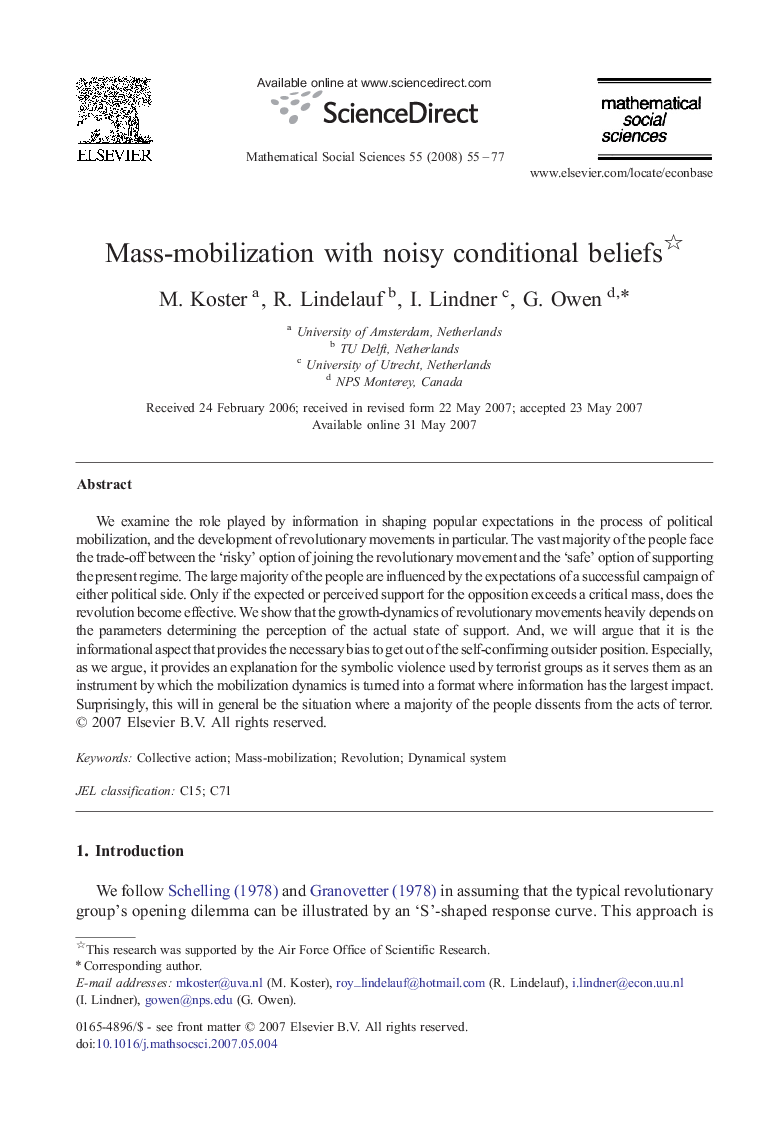| Article ID | Journal | Published Year | Pages | File Type |
|---|---|---|---|---|
| 972328 | Mathematical Social Sciences | 2008 | 23 Pages |
We examine the role played by information in shaping popular expectations in the process of political mobilization, and the development of revolutionary movements in particular. The vast majority of the people face the trade-off between the ‘risky’ option of joining the revolutionary movement and the ‘safe’ option of supporting the present regime. The large majority of the people are influenced by the expectations of a successful campaign of either political side. Only if the expected or perceived support for the opposition exceeds a critical mass, does the revolution become effective. We show that the growth-dynamics of revolutionary movements heavily depends on the parameters determining the perception of the actual state of support. And, we will argue that it is the informational aspect that provides the necessary bias to get out of the self-confirming outsider position. Especially, as we argue, it provides an explanation for the symbolic violence used by terrorist groups as it serves them as an instrument by which the mobilization dynamics is turned into a format where information has the largest impact. Surprisingly, this will in general be the situation where a majority of the people dissents from the acts of terror.
